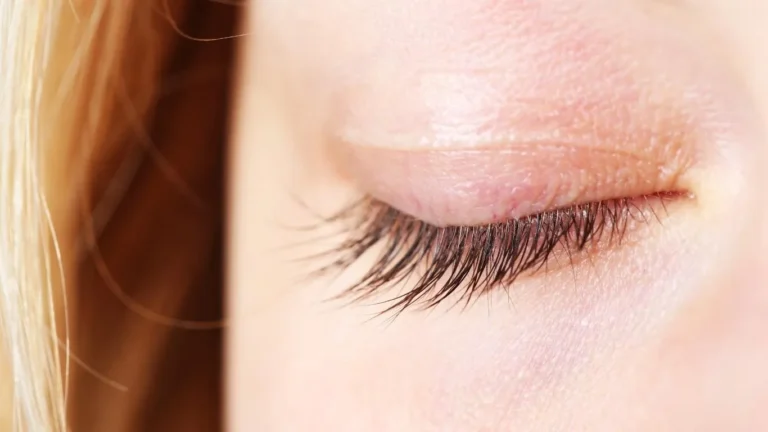Is Dark Chocolate Safe for GERD? Discover Benefits and Risks
If you’ve ever felt that familiar burn rising up your chest after indulging in a rich piece of chocolate, you’re not alone. As someone who has dealt with GERD for years, I used to think chocolate was completely off the table—especially dark chocolate, which I once believed was the “healthier” choice. But as I dug deeper (and did some not-so-guilt-free experimenting), I realized the answer isn’t so black and white. So, let’s break down whether dark chocolate is truly friend or foe when it comes to acid reflux and GERD.
How Chocolate Affects GERD: What’s Really Going On?

Chocolate is one of those bittersweet indulgences—literally and figuratively—when you’re managing GERD. It’s creamy, comforting, and often the first treat to go when symptoms flare. But why does it stir up such discomfort in the first place?
Relaxation of the Lower Esophageal Sphincter (LES)
Chocolate, especially dark varieties, contains methylxanthines like theobromine and caffeine, which can relax the LES. When that valve weakens or opens at the wrong time, stomach acid can sneak back up into your esophagus, triggering heartburn.
High Fat Content
Fat slows down digestion, increasing the time your stomach stays full and putting more pressure on the LES. Dark chocolate typically contains more cocoa solids, which means more fat than many expect. This combo of fat and methylxanthines can be a reflux recipe for some folks.
Caffeine and Stimulants
While dark chocolate contains less caffeine than coffee, even a modest amount can stimulate acid production. For sensitive individuals like myself, even a few squares of 70% cacao can be enough to set things off.
According to the Mayo Clinic, caffeine is one of the common dietary triggers for acid reflux, especially when paired with other LES-relaxing foods.
Is Dark Chocolate Safer Than Milk Chocolate for GERD?

There’s this common belief that dark chocolate is the “better” option—lower sugar, more antioxidants, more cacao. And yes, from a nutritional standpoint, that can be true. But from a GERD perspective, it’s complicated.
- Higher cacao = higher theobromine: Dark chocolate contains more of the very compound that relaxes the LES.
- Less dairy doesn’t mean safer: You might think avoiding milk in chocolate makes it easier to digest, but that doesn’t always translate to reflux relief.
- Portion size matters: A small square might go unnoticed by your stomach, but half a bar could be another story.
From my personal experience, I found that switching to 85% cacao helped reduce sugar-induced inflammation—but I also had to limit myself to no more than two small squares per sitting. Timing was also key; eating it after dinner was a guaranteed regret, but having it earlier in the day with a full meal? Much more manageable.
Real-World Tips: How to Enjoy Dark Chocolate Without Regret

Despite all the warnings, you don’t have to ban chocolate from your life entirely. The key is smart moderation and strategic timing. Here’s what worked for me and many others navigating GERD without fully sacrificing indulgence:
- Choose quality over quantity: Go for small portions of high-quality dark chocolate (ideally 70% cacao or higher).
- Skip chocolate at night: Eating it close to bedtime increases the risk of nighttime reflux. Try it in the afternoon instead.
- Pair it with alkaline or low-acid foods: Combine it with a few bites of oatmeal or a banana to buffer acid impact. Learn more from this guide on GERD-friendly foods.
- Watch your triggers: If caffeine or high-fat snacks already irritate your reflux, even a small amount of dark chocolate could push you over the edge.
It’s also worth noting that each person’s threshold is unique. Some people might handle 60% cacao without any issues, while others feel the burn after just a whiff of chocolate cake. Listening to your body is key—no expert or study knows your triggers better than you do.
Alternatives to Dark Chocolate That Don’t Trigger GERD

If you’ve tried and failed to enjoy chocolate without consequences, don’t worry—there are still options for your sweet tooth:
- Carob: Naturally caffeine-free, lower in fat, and often used as a chocolate substitute.
- Cocoa nibs: Contain less sugar and can be tolerated in small amounts for some GERD sufferers.
- Low-fat chocolate pudding: When homemade with safe ingredients, this can be a gentle compromise.
Check out these other GERD-friendly dessert ideas that won’t leave you regretting your cravings.
One more pro tip I swear by? Keeping a food journal for a week or two. It helped me identify exactly which type of chocolate (and how much) crossed the line for me. This simple practice has been a game-changer—and honestly, it helped me reclaim chocolate on my terms.
For a full breakdown of long-term GERD triggers and treatments that go beyond just food choices, explore this foundational article: GERD Lifestyle Changes That Actually Work for Lasting Relief.
Why Some People Can Tolerate Dark Chocolate with GERD

Here’s the thing—GERD isn’t a one-size-fits-all condition. Just like I can handle a little almond butter without flare-ups, but my friend breaks into heartburn after one spoonful, chocolate tolerance varies wildly from person to person. So why do some folks seem to enjoy dark chocolate without triggering acid reflux?
Genetics and Digestive Sensitivity
Some people have naturally stronger lower esophageal sphincters (LES) or produce less stomach acid overall. Others may metabolize caffeine and theobromine more efficiently. These factors can make dark chocolate less disruptive for them. Lucky, right?
Eating Habits and Lifestyle
Those who eat slowly, chew thoroughly, and avoid reclining after meals often experience fewer reflux symptoms—even with trigger foods. That’s why simple GERD prevention habits can go a long way.
Gut Health and Diet Balance
If your overall gut health is in decent shape—meaning low inflammation, healthy microbiome, and minimal bloating—you might bounce back easier from small indulgences. In fact, I noticed a huge improvement once I started cutting out carbonated drinks and late-night snacking.
Want to improve your gut environment for fewer chocolate regrets? Try incorporating fermented foods or exploring GERD-gut health connections.
How to Pick GERD-Safer Chocolate Products

Let’s say you’re determined to include dark chocolate in your life—no judgment here. The key is choosing products more likely to sit well with your digestive system. Here’s what to look for when you shop:
- Cacao content between 70–80%: High enough for health benefits, but not so high in theobromine to wreak havoc.
- Low or no dairy: Milk chocolate tends to combine fat, sugar, and lactose—a triple threat for reflux sufferers.
- No added oils: Skip bars made with palm oil or hydrogenated fats, which worsen digestive symptoms.
- Minimal ingredients: The fewer additives (like emulsifiers or artificial sweeteners), the better for your gut.
I personally avoid chocolate labeled “superfood-infused” or loaded with trendy ingredients—chia, maca, sea salt, or adaptogens can be too unpredictable for sensitive stomachs.
If you’re looking for more detailed food lists that help or harm acid reflux, this GERD diet guide offers a great breakdown.
Is the Antioxidant Benefit Worth the GERD Risk?

We’ve all heard the buzz—dark chocolate is loaded with antioxidants like flavonoids that support heart health, brain function, and even mood. But do these health perks justify the digestive risk?
Truth is, you can get similar antioxidant benefits from GERD-friendlier foods like:
- Bananas (especially slightly green ones)
- Papaya (with natural enzymes that soothe digestion)
- Blueberries and low-acid fruits
- Green leafy veggies, especially spinach and kale
Personally, I’ve shifted toward antioxidant-rich smoothies using ginger, blueberries, and even small doses of carob powder. I still keep dark chocolate around—just not as a daily staple. If I’m craving something sweet, I reach for acid reflux-safe smoothies that won’t come back to bite me later.
What Doctors and Studies Say About Chocolate and Reflux

Medical opinions around chocolate and GERD are evolving. While earlier studies broadly warned against chocolate for reflux patients, newer perspectives are more nuanced. According to research published in the National Institutes of Health, certain individuals tolerate dark chocolate well—especially when it’s consumed in moderation and not combined with other known triggers.
Gastroenterologists generally advise limiting chocolate intake but emphasize observational symptom tracking over blanket restrictions. That aligns with my experience: trial and error, food journals, and timing tweaks helped more than anything else.
One practitioner from the Cleveland Clinic noted that for patients with silent reflux, even minimal chocolate could be problematic, while others with more occasional symptoms could enjoy it with fewer consequences.
Signs Your Body Isn’t Handling Chocolate Well

If you’re wondering whether dark chocolate is contributing to your flare-ups, here are some subtle signs to watch for—some of which I learned the hard way:
- Chest tightness or heartburn within 30–90 minutes of eating chocolate
- Throat clearing or hoarseness (a sign of LPR or silent reflux)
- Dry cough that appears after meals or before bedtime
- Stomach bloating or prolonged fullness
These symptoms aren’t exclusive to chocolate, of course, but keeping a log can help you spot patterns. If dark chocolate consistently shows up before a reflux episode, it’s probably time to cut back or find an alternative.
For a complete guide on what symptoms of GERD to monitor closely, don’t miss this detailed resource: GERD Symptoms You Shouldn’t Ignore.
Myths About Dark Chocolate and GERD You Should Stop Believing

If you’ve ever searched “Is dark chocolate good or bad for acid reflux?” you’ve likely come across all sorts of conflicting answers. Been there. Some say it’s harmless; others treat it like digestive poison. Let’s clear up a few common myths that don’t hold up under real-world scrutiny:
- Myth #1: “All chocolate is equally bad.”
Not true. Milk chocolate tends to be worse due to higher fat, dairy, and sugar content. Dark chocolate, in moderation, is often tolerated better—especially if you choose the right type and time it right. - Myth #2: “One square will cause immediate heartburn.”
Unless you’re highly sensitive, small amounts are often fine when paired with low-acid meals and not eaten late at night. - Myth #3: “Dark chocolate helps digestion.”
This gets thrown around because of antioxidants and polyphenols, but for those with GERD, the trigger effect often outweighs the benefit. There are safer ways to support your gut health. - Myth #4: “Caffeine-free chocolate is GERD-safe.”
Even decaffeinated chocolate contains theobromine, which relaxes the LES and can still provoke symptoms.
When it comes to chocolate and GERD, there’s no magic answer. But it’s time we stop treating it as all or nothing—and start focusing on what actually works for your body.
GERD-Friendly Chocolate-Inspired Recipes (Yes, They Exist!)

Giving up traditional chocolate bars doesn’t mean giving up chocolate flavor. If you’re creative in the kitchen (or willing to try), there are some fantastic ways to enjoy chocolate-like treats without angering your stomach.
1. Cocoa Banana Smoothie
- 1 small banana (ripe, not overripe)
- 1 tsp unsweetened cocoa powder
- 1 cup almond milk or rice milk
- 1/2 tsp raw honey (optional)
Blend until smooth. The banana helps buffer the acidity, while the cocoa gives you that chocolate fix.
2. Carob Coconut Bites
- 1/2 cup shredded coconut (unsweetened)
- 2 tbsp carob powder
- 1 tbsp coconut oil
- 1 tsp maple syrup
Mix, roll into balls, refrigerate. Carob is naturally low in fat and caffeine-free, making it a gentler alternative.
3. GERD-Safe Hot “Chocolate”
- 1 cup oat milk
- 1 tbsp carob or low-fat cocoa powder
- Cinnamon or nutmeg to taste (avoid if sensitive)
Warm gently, stir well, and sip slowly. Avoid drinking this late in the evening if nighttime reflux is a concern.
For more soothing meals that won’t trigger symptoms, check out these GERD-safe dinner ideas that pair well with mild treats like these.
My GERD Chocolate Rules: What Actually Helped

Here’s what I’ve learned after years of testing my limits and failing (more than once):
- Track, don’t guess: Keep a note in your phone or journal of what kind of chocolate you ate, when, and what happened after.
- Less is best: Two squares or fewer, paired with food, is my safe zone. Anything more than that? I’m playing reflux roulette.
- Skip dessert late: No chocolate after 7 PM—this one rule alone reduced my night reflux by half.
- Balance it out: If I know I’m having chocolate, I’ll skip other trigger foods like tomatoes, citrus, or spicy stuff that day.
And if I do overdo it? I’ve found gentle remedies like slippery elm or sipping warm chamomile tea can help calm things down naturally.
Final Verdict: Is Dark Chocolate Worth the Risk?

If you’re like me, giving up dark chocolate forever isn’t realistic—or necessary. But being strategic about how, when, and how much you consume makes a world of difference. While it’s not a GERD-friendly food across the board, it also doesn’t need to be your digestive enemy for life.
Take your time experimenting. Go slow, log your reactions, and pay attention to your unique tolerance. Your goal isn’t to eliminate every food—it’s to live comfortably and joyfully without fearing every bite.
And when chocolate really does cause flare-ups? There are plenty of delicious alternatives to turn to—without sacrificing flavor or satisfaction.
Want to build a better strategy around chocolate and reflux? Learn more in this expert-backed guide on natural GERD relief strategies that work.

Camellia Wulansari is a dedicated Medical Assistant at a local clinic and a passionate health writer at Healthusias.com. With years of hands-on experience in patient care and a deep interest in preventive medicine, she bridges the gap between clinical knowledge and accessible health information. Camellia specializes in writing about digestive health, chronic conditions like GERD and hypertension, respiratory issues, and autoimmune diseases, aiming to empower readers with practical, easy-to-understand insights. When she’s not assisting patients or writing, you’ll find her enjoying quiet mornings with coffee and a medical journal in hand—or jamming to her favorite metal band, Lamb of God.







